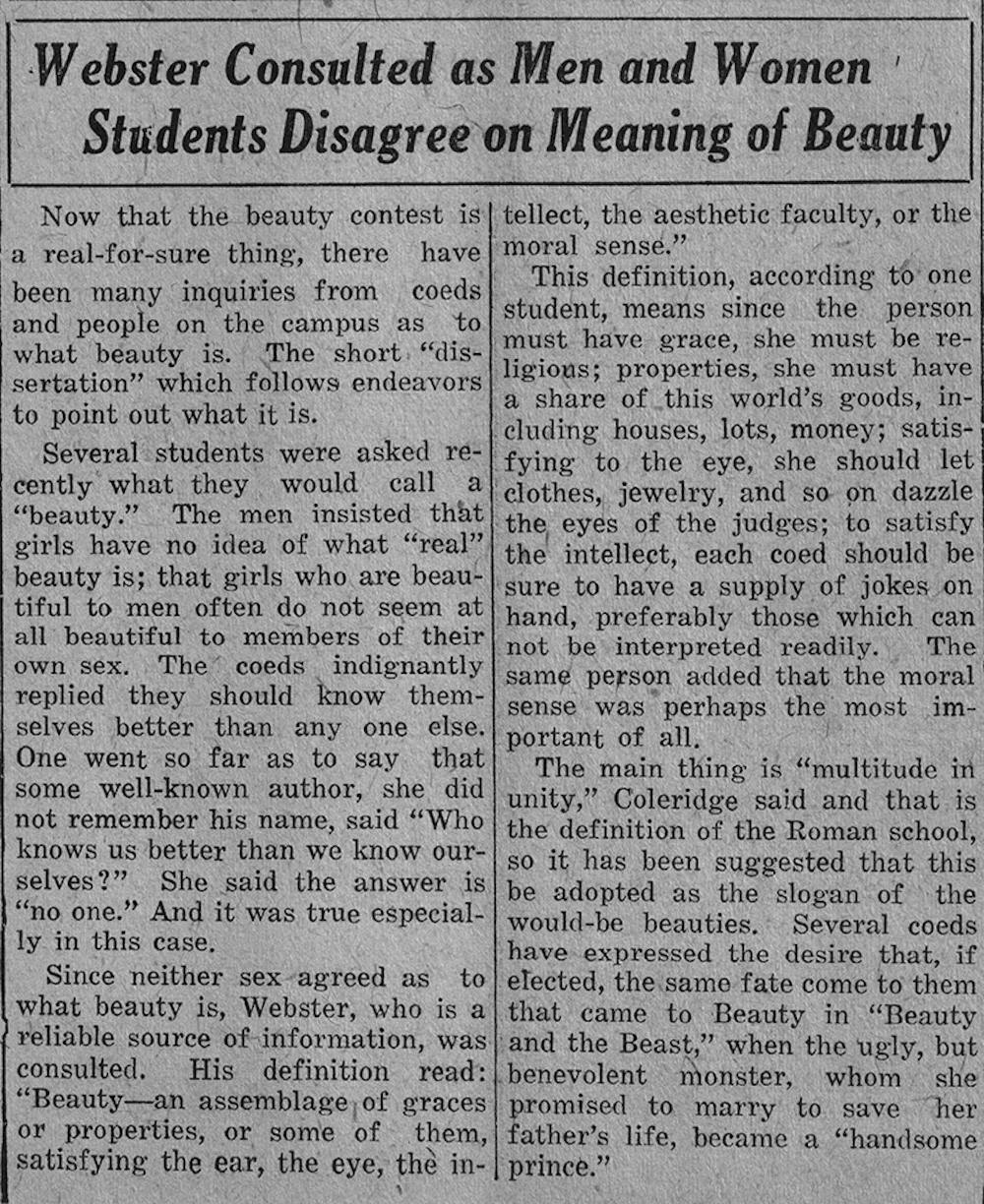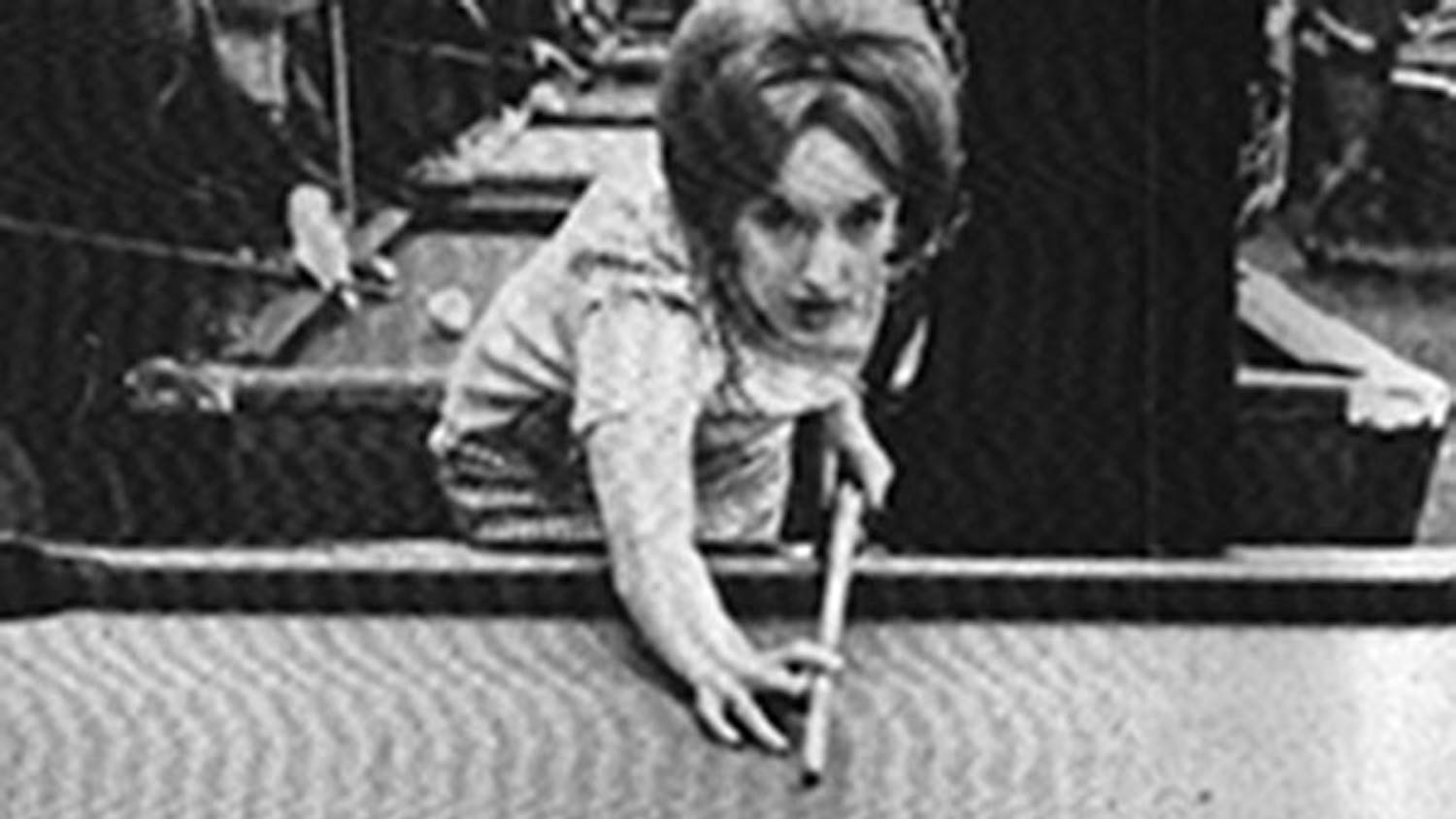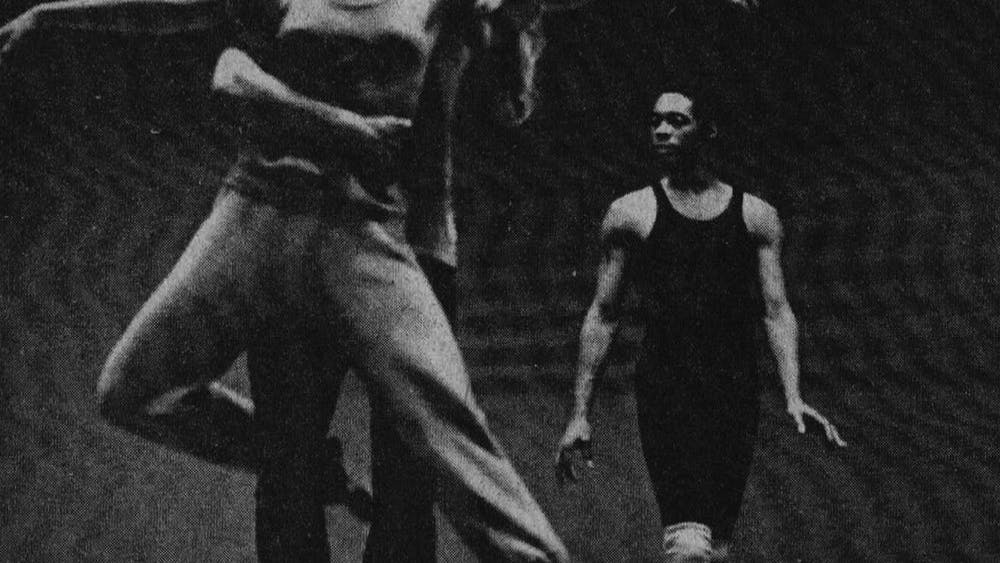Transcription: Webster Consulted as Men and Women Students Disagree on Meaning of Beauty
Now that the beauty contest is a real-for-sure thing, there have been many inquiries from coeds and people on the campus as to what beauty is. The short “dissertation” which follows endeavors to point out what it is.
Several students were asked recently what they would call a “beauty.” The men insisted that girls have no idea of what “real” beauty is; that girls who are beautiful to men often do not seem at all beautiful to members of their own sex. The coeds indignantly replied they should know themselves better than any one else. One went so far as to say that some well-known author, she did not remember his name, said “Who knows us better than we know ourselves?” She said the answer is “no one.” And it was true especially in this case.
Since neither sex agreed as to what beauty is, Webster, who is a reliable source of information, was consulted. His definition read: “Beauty-an assemblage of graces or properties, or some of them, satisfying the ear, the eye, the intellect, the aesthetic faculty, or the moral sense.”
This definition, according to one student, means since the person must have grace, she must be religious; properties, she must have a share of this world’s goods, including houses, lots, money; satisfying to the eye, she should let clothes, jewelry, and so on dazzle the eyes of the judges; to satisfy the intellect, each coed should be sure to have a supply of jokes on hand, preferably those which can not be interpreted readily. The same person added that the moral sense was perhaps the most important of all.
The main thing is “multitude in unity,” Coleridge said and that is the definition of the Roman school, so it has been suggested that this be adopted as the slogan of the would-be beauties. Several coeds have expressed the desire that, if erected, the same fate come to them that came to •Beauty in “Beauty and the Beast,” when the ugly, but benevolent monster, whom she promised to marry to save her father’s life, became a “handsome prince.”





